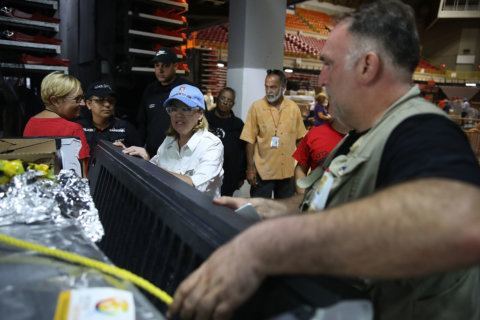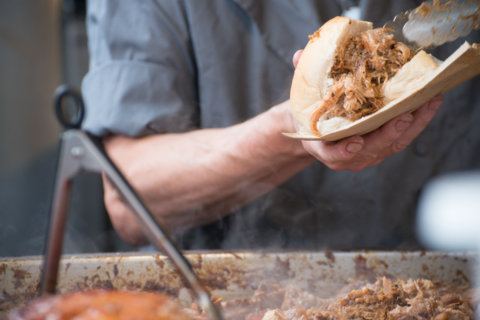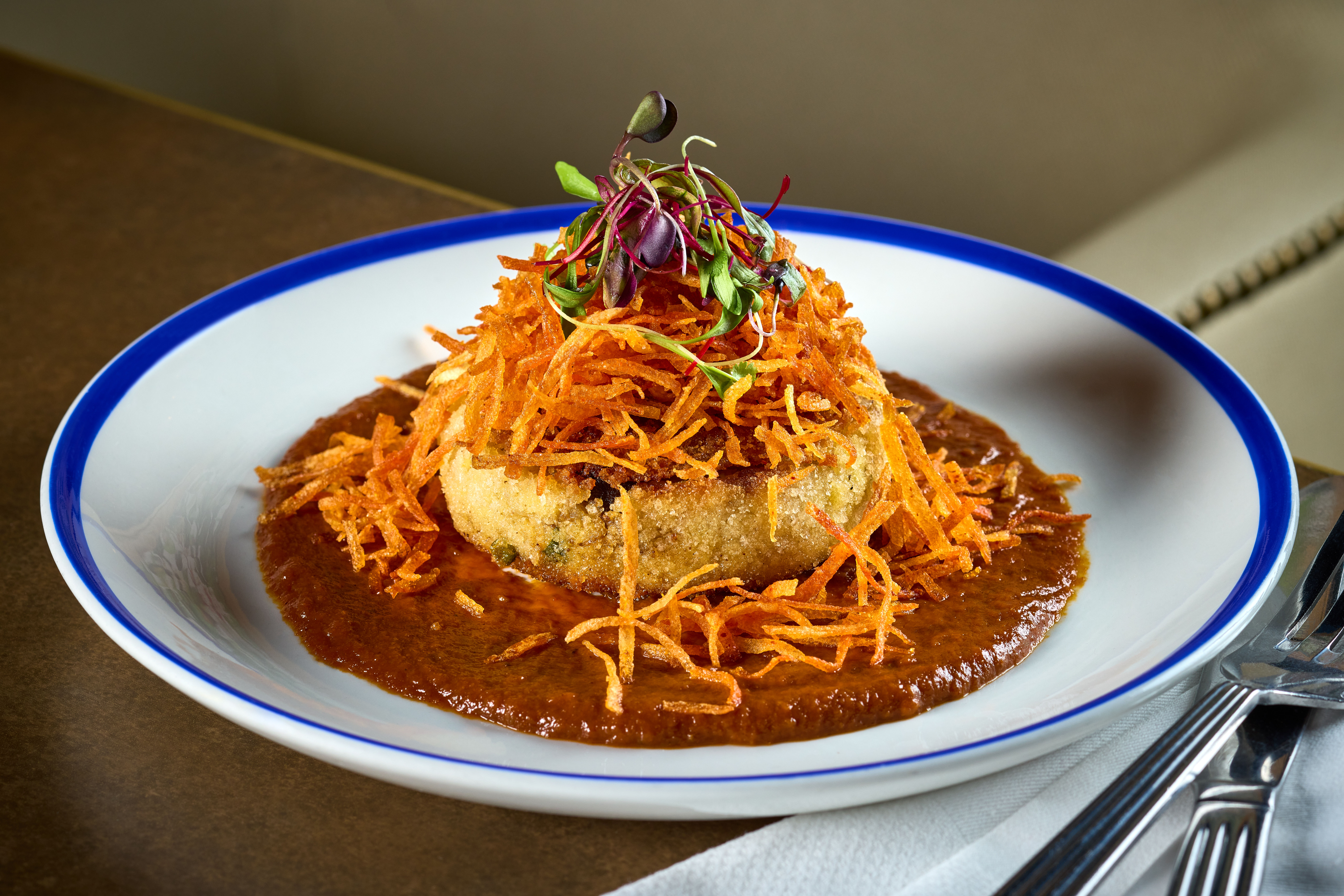Language is one of the biggest barriers refugees face when resettling in a new country; securing work is another. But a new D.C. event is helping refugees and asylum-seekers overcome both of these challenges — one plate at a time.
June 17 through 22, chefs at five popular D.C. restaurants will hand over the reigns, and their kitchens, to refugee chefs working to reestablish their careers in the U.S. On rotating nights, the menus at Maydan, A Rake’s Progress, Espita Mezcaleria and Little Sesame will be rewritten to showcase cuisines from Syria, El Salvador, Afghanistan and South Sudan; Uyghur food will be highlighted at Himitsu.
“Finding a job here has been a little difficult for some refugees and asylum-seekers, but this event is really cool because you don’t need to know exactly what to say at every given point in the day. You just need to know how to cook and know your craft,” said Sara Abdel-Rahim, who along with Sam Sgroi, co-founded the event and organization, Tables Without Borders.
Both Abdel-Rahim and Sgroi have previous experience working with refugees. They said launching this dinner series is one way to build a local community to support those who have been displaced from other regions.
“Food is an amazing medium because food speaks for itself. So being able to give people a platform to just cook and give people an opportunity to try food they wouldn’t normally try is the best way to overcoming that barrier and helping people showcase their skills in a way that they wouldn’t otherwise be given the opportunity to,” Abdel-Rahim added.
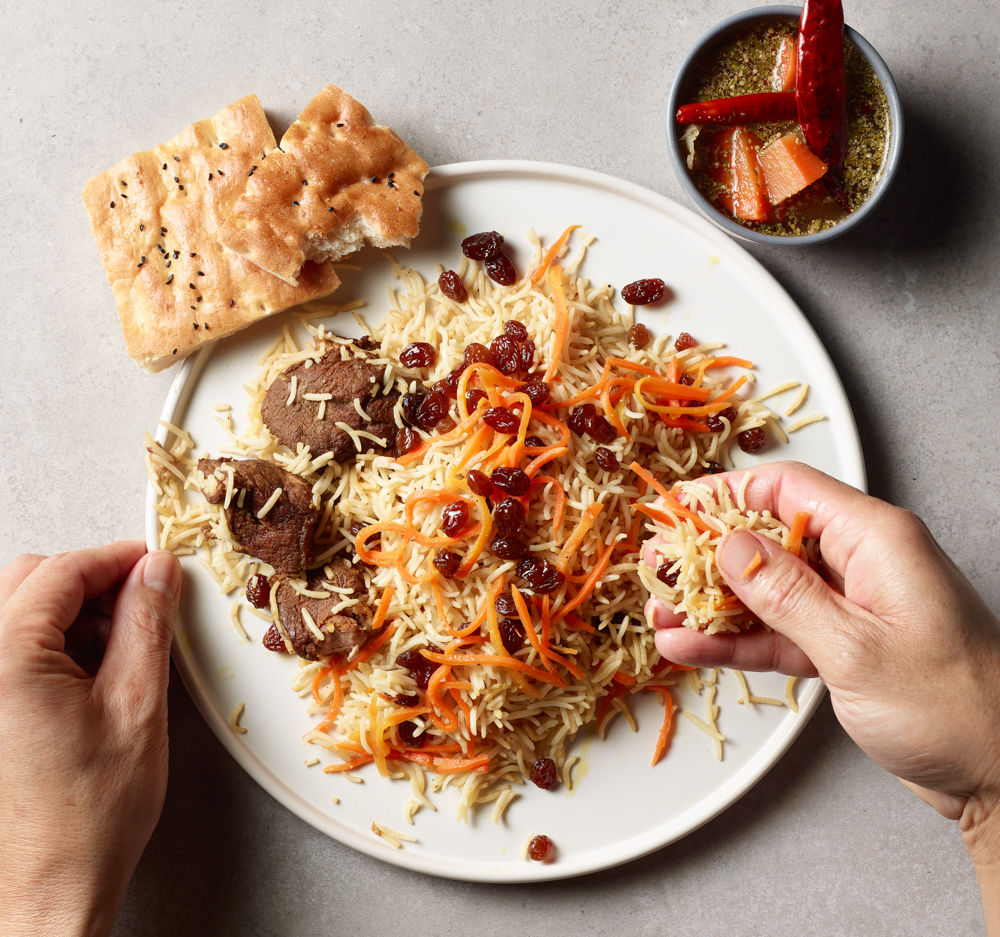
When Nejat Ahmadollah came to the U.S. from Afghanistan in 2014, he arrived with his wife, two children and several years of professional cooking experience. Ahmadollah resettled in the D.C. area and found work as a caterer and private-event chef. His dream, however, is to open his own restaurant where we can cook traditional Afghan food.
“Afghan is a rich culture [for] food,” Ahmadollah said. “People, they don’t really know about authentic Afghan food.”
On June 21, Ahmadollah will join the chefs at Maydan and prepare classic Afghan plates, including his signature dish, kabuli, made with rice, carrots, raisins and meats. Roasted pumpkin with yogurt and mint is another favorite of his to cook.
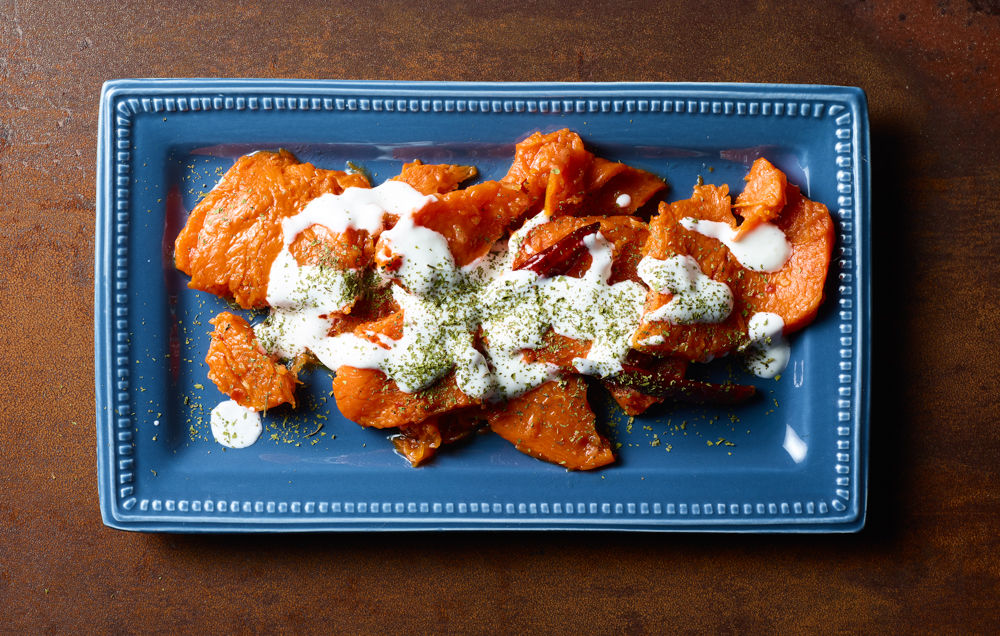
“I think people in the D.C. area think of Afghan food as just grilled meats and kabob-centric, but there’s so much more unique flavors and richness to that,” said Abdel-Rahim, who worked with Sgroi to find the refugee and asylum-seeker chefs through various community networks.
“If every person in D.C. has an opportunity to try Afghan food for what Nejat presented to us, this will be the luckiest city in the world, I think.”
Restaurants participating in Tables Without Borders will donate a portion of each night’s proceeds to HIAS, a nonprofit that provides aid and assistance to refugees. Several of the event’s evenings are sold out, but some reservations are still available.
If you can’t score a seat to this first round of dinners from Tables Without Borders, there’s no need to worry: The organization’s founders said they are “looking to have an impact long-term.”
“So one of the purposes of this project, and also what we’re hoping to do going forward, is to extend that time and help people have some income in that time where they’re resettling and getting acquainted to a new life and a new home,” Abdel-Rahim said.
Referencing the willingness of D.C.’s top restaurants to sign on for the refugee-led dinners, she added, “I think the sky’s the limit moving forward for this event.”

